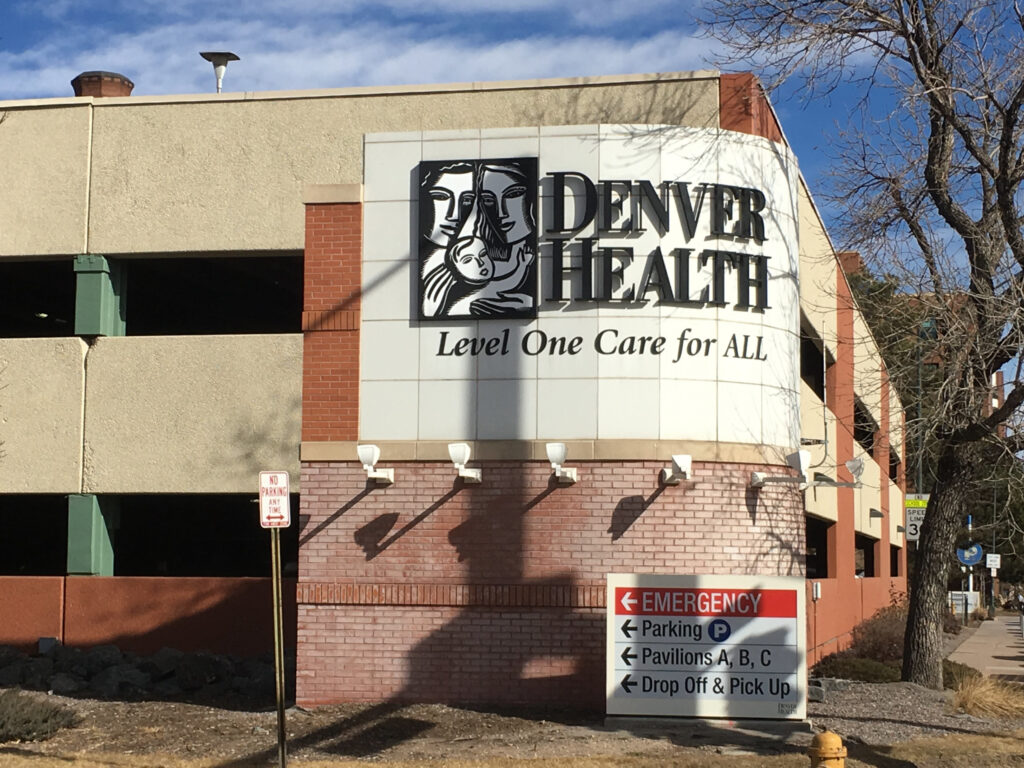By Jeffrey A. Roberts
CFOIC Executive Director
A trauma surgeon’s lawsuit is testing the scope of a 2018 statute that concerns the public disclosure of Denver Health and Hospital Authority records.
Before the enactment of Senate Bill 18-149, state law plainly stated that Denver Health’s records are subject to the Colorado Open Records Act. The bill deleted that sentence, replacing it with a list of records — including resolutions, minutes, annual reports, financial statements, and employee salaries — that are deemed “public” under CORA.

It also declared that the authority’s electronic medical record system is not public and that other records concerning health care programs and initiatives also are off limits to the public “if premature disclosure … would give an unfair competitive or bargaining advantage to any person or entity.”
The legislation was intended to protect the privacy of patients served by Denver Health, mostly from “data miners” who request electronic records from the hospital on behalf of commercial interests, according to the primary sponsor, Republican Sen. Bob Gardner of Colorado Springs. During a legislative hearing, Denver Health officials stressed the importance of protecting individuals’ health records and the hospital’s position among its competitors.
But a civil complaint filed in Denver District Court in July alleges Denver Health is using the 2018 law “as a shield from its CORA responsibilities.”
In dispute are records requested in June by Dr. Clay Burlew, a former Denver Health employee who teaches surgery at the University of Colorado School of Medicine. Her complaint says Denver Health wrongfully withheld “pay band” (salary range) policies, leadership stipend policies, salaries and bonuses for surgery department employees, personnel reports from an employment litigation firm, personnel reports containing complaints of gender discrimination, and internal job postings.
Denver Health and Hospital Authority (DHHA) cited the 2018 amended statute, § 25-29-109, to withhold the records. But Burlew’s lawyers contend the provision sets only two limits on the disclosure of Denver Health records to Burlew “where CORA may otherwise require their production”: records related to competitive programs and individual personnel files. “With the exception of her own personnel file (available to Burlew as a “person in interest”) …, Dr. Burlew does not seek any documents that fall within those limitations.”
The language in § 25-29-109 “describes specific records of the DHHA Board that are to be definitively construed as public records — without exception. It does not otherwise limit DHHA’s obligations under CORA,” Burlew’s lawsuit argues, adding that no CORA exemption prohibits the disclosure of the withheld records.
“Indeed,” the lawsuit says, the disputed records “are explicitly included as public records” under CORA provisions as well as § 25-29-109. “The policies underlying how DHHA employees are paid are also public records as they demonstrate how public funds are to be allocated and spent.”
Lawyers for Denver Health responded to the lawsuit in a Sept. 2 brief, describing the records sought by Burlew as “not public records” subject to CORA (aside from the salary information, which they say was provided to the doctor).
Under Denver Health’s reading of the 2018 statute, “only certain records specifically identified in the statutory language and not otherwise excepted are subject to disclosure. Any records of Denver Health not specifically listed in § 25-29-109 are not public records.”
The list of public records in the statute includes: 1) resolutions and other proceedings of the board of directors; 2) minutes of the board meetings; 3) annual reports and financial statements; 4) certificates, contracts, and financial agreements; 5) employee salaries; 6) bonds given by officers, employees, and any other agents of the authority; 7) personnel reports, guidelines, manuals, or handbooks, other than individual personnel files; and 8) the account of all money received by and disbursed on behalf of the authority.
Denver Health lawyers pointed to a recent Denver District Court ruling, in a case brought by Denver Health Workers United, that stated: “DHHA’s enabling statute … specifies that only certain records of DHHA are ‘public records’ subject to CORA.”
But even if the records withheld from Burlew were public records under CORA, Denver Health’s filing also argues, “the requested records are confidential and privileged under either the attorney-client privilege, attorney work product doctrine, and/or deliberative process privilege, or are otherwise exempt from disclosure.”
A hearing on Burlew’s lawsuit is scheduled for Oct. 4.
Follow the Colorado Freedom of Information Coalition on Twitter @CoFOIC. Like CFOIC’s Facebook page. Do you appreciate the information and resources provided by CFOIC? Please consider making a tax-deductible donation.




